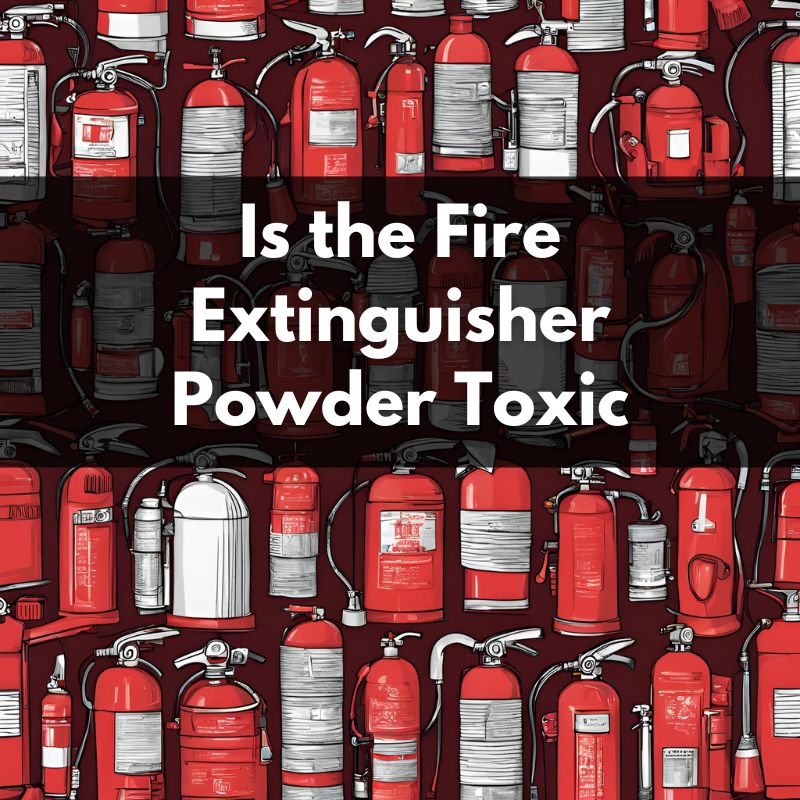
Is Fire Extinguisher Powder Toxic?
Fire extinguishers are essential safety devices designed to control and extinguish fires. They come in various types, including those that use different types of extinguishing agents, such as powder, foam, carbon dioxide, and water. Among these, powder extinguishers are commonly used for their effectiveness in fighting a wide range of fires. However, concerns about the safety and toxicity of the powder used in these extinguishers are valid and important to address.
Types of Fire Extinguisher Powder
Fire extinguisher powders generally fall into the following categories:
- ABC Powder: A multi-purpose powder effective against Class A (wood, paper), Class B (flammable liquids), and Class C (electrical) fires. It typically contains a mixture of ammonium phosphate and ammonium sulfate.
- BC Powder: Used for Class B and Class C fires, usually consisting of sodium bicarbonate or potassium bicarbonate.
- D Powder: Specifically designed for metal fires (Class D), made from materials like sodium chloride or other specialized compounds.
Toxicity Concerns
**1. Inhalation Risks:
- Powder Inhalation: Inhaling fire extinguisher powder, especially in large quantities, can irritate the respiratory system. Symptoms may include coughing, throat irritation, and difficulty breathing. Extended exposure might exacerbate these symptoms.
- Prevention: To minimize inhalation risks, avoid direct exposure to the powder. If a powder extinguisher is used, ensure proper ventilation in the area and evacuate the space if possible until the powder settles.
**2. Skin and Eye Contact:
- Skin Irritation: Contact with fire extinguisher powder can cause skin irritation, particularly for those with sensitive skin or existing skin conditions. Rinse affected areas with water if contact occurs.
- Eye Irritation: Powder can irritate the eyes, causing redness, discomfort, and potential damage. If powder gets into the eyes, flush them immediately with water and seek medical attention if irritation persists.
**3. Ingestion:
- Swallowing Powder: Ingesting small amounts of fire extinguisher powder is unlikely to cause severe harm but may result in gastrointestinal discomfort. If a large quantity is ingested, seek medical advice.
**4. Environmental Impact:
- Ecological Effects: Fire extinguisher powders can have environmental impacts if not properly cleaned up, especially when large amounts are released. They can potentially contaminate soil and water, leading to adverse effects on local ecosystems.
Safety Measures and First Aid
**1. Use Extinguishers Safely:
- Read Instructions: Always follow the manufacturer’s instructions when using a fire extinguisher. Ensure you are familiar with its operation and the type of fires it is designed to handle.
**2. Ventilation:
- Proper Ventilation: Ensure adequate ventilation in the area where a fire extinguisher is used. This helps disperse the powder and reduces inhalation risks.
**3. Protective Gear:
- Wear Protection: Use protective clothing, masks, and eyewear if handling or cleaning up fire extinguisher powder to minimize exposure.
**4. Clean-Up Procedures:
- Proper Clean-Up: Clean up fire extinguisher powder promptly and properly to prevent environmental contamination. Follow local regulations for disposal if large amounts are involved.
**5. Seek Medical Help:
- Medical Attention: If you experience significant symptoms after exposure to fire extinguisher powder, seek medical attention. This includes persistent respiratory issues, severe skin or eye irritation, or ingestion concerns.
Conclusion
Fire extinguisher powder, while effective in extinguishing various types of fires, can pose health risks if not handled properly. It can be irritating to the respiratory system, skin, and eyes, and ingestion of large amounts can cause gastrointestinal discomfort. To ensure safety, follow proper usage instructions, take protective measures, and seek medical advice if adverse symptoms occur. For more safety tips and information on health concerns, visit News Gutter, your reliable source for valuable insights.
